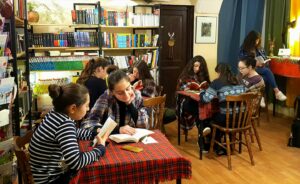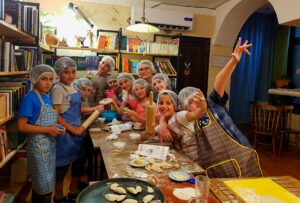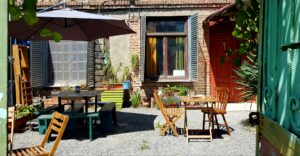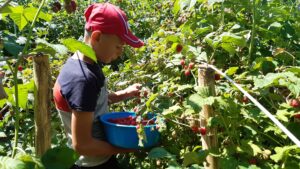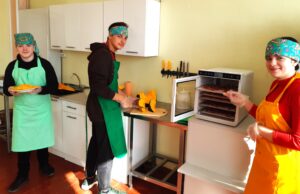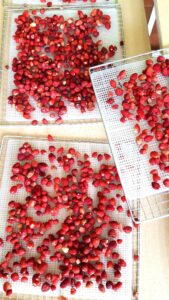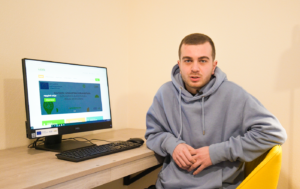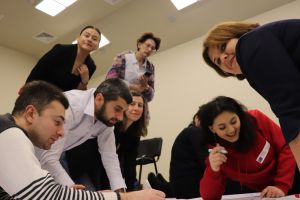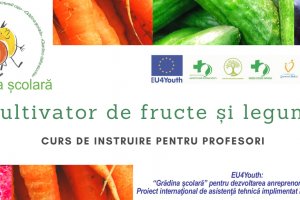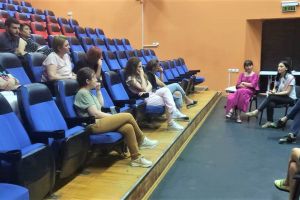
Supporting young people in the Eastern Partnership: EU4Youth marks the achievements of 2021, while facing the challenges of 2022
Despite the ongoing uncertainty and disruption caused by the Coronavirus pandemic, and the often challenging political environment in the region, the EU4Youth programme in 2021 achieved outstanding results in helping to equip young people with the necessary skills and tools. However, with new crises hitting the region in 2022, EU support to young people in the Eastern Partnership is more important than ever before.
From necessary skills to financial independence
Matching skills to the demands of the labour market, finding a job, starting a business, and becoming active citizens remain the main focus of EU4Youth. On top of that, young people who have been internally displaced or had to flee the war in Ukraine, who are socio-economically vulnerable or living in rural areas, face a range of additional obstacles.
When Samvel Mirzakhanyan from Armenia, now the owner of Haterk Food, first came across EU4Youth, the entrepreneur already had a debt, and no banks were willing to lend him the funds he needed to develop his business. The training provided through the programme helped Samvel to start producing honey in his home village in Armenia, and the mentorship he received encouraged him to start selling his products in two shops in Dubai.
With the support of the EU4Youth Social Entrepreneurship in Armenia and Georgia (SEAG) project, Samvel was able to grow and to strengthen his business: “Thanks to the project, I was able to get back on my feet, more determined, experienced, stronger and more motivated than ever before.”
Since the start of EU4Youth in 2018, over 28,000 young programme participants like Samvel have gained new skills. This learning experience was facilitated through 1,330 face-to-face competence-development activities, such as trainings, workshops or study visits. Young people have also been given the chance to engage in mentorships, internships and apprenticeships facilitated by the different EU4Youth projects.
Helping social entrepreneurship in the region grow
In Belarus, supported by the EU4Youth School Garden project, some pupils opened a school-based enterprise manufacturing healthy snacks and sweets. One of the budding entrepreneurs, Artsiom Shakunou, shared the importance of acquiring relevant market skills and directly applying them: “We work in the garden, learn organic farming methods, study drying technology and we will try to promote and sell our products.”
In total, EU4Youth projects have supported 368 young entrepreneurs starting their own business since 2018 – and every one of them is an individual story of resilience, determination, and growth. With direct financial support from EU4Youth, 116 start-ups have been launched over the past four years.
One of these entrepreneurs is Nana Bagalishvili from Georgia, who opened the Knowledge Café in the town of Tsnori. There were no public spaces where people could meet in Tsnori, so Nana and 25 of her friends got together and organised events on the street. Between 2011 and 2016, the team offered open air community events, ranging from book launches to Halloween celebrations.
Building on this success, the founders of the social enterprise wanted to expand and involve more people in this work. The EU4Youth Social Entrepreneurship in Armenia and Georgia (SEAG) project was there to offer much-needed practical knowledge and skills, along with a financial grant. The funding allowed them to move to a new, larger building. Nana says that she and her friends want to keep “sharing our knowledge and experiences, and to continue to provide opportunities for people in their own region and to create opportunities for their self-realisation.”
With active citizenship towards a thriving civil society
Supporting youth groups and youth structures designed to foster the engagement and empowerment of young people has also been an important component of the programme.
In Georgia, the EU4Youth SEED project helped to establish rural innovation knowledge hubs in three different municipalities. The hubs provide a free space for young people to develop their plans, whether they have entrepreneurial ideas, want to learn more about different social or environmental issues, design awareness-raising campaigns, or build an active civil society in their communities.
Giorgi Khokhobashvili is an active participant in all these spaces. Through his local hub, Giorgi was introduced to a number of opportunities and as a result he won the European Solidarity Diplomacy competition. He will be travelling to Austria for 10 months to work on empowering local youth. When he returns, Giorgi plans to use the experience and knowledge gained in Austria and apply it to help other young people to participate in similar programmes.
“The existence of these hubs and the support they provide is a source of motivation for us to do our share in developing our region and do our best to improve the environment for young people,” says Giorgi.
In addition to these initiatives, the EU4Youth Alumni Network also provides a space for further local activism designed to support disadvantaged youth. It began its new cycle in October 2021 and currently involves 90 young Alumni who have been working together on local-level initiatives in all six countries.
Adapting to an ever-evolving reality
Having to deliver in spite of the COVID-19 pandemic has undoubtedly shaped the EU’s support to youth, but 2022 has already seen immense challenges for young people in the Eastern partner countries. The Russian invasion of Ukraine has strongly destabilised the region. While Ukrainians are suffering the most dire and immediate consequences of the war, its devastating effects are being felt by young people across the Eastern Partnership as a whole.
Released as part of the EU4Youth Achievements Report, the 10 recommendations proposed by the programme address the urgent need to strengthen the ecosystem for young people in the region. These recommendations however depend on the implementation context – the projects must be able to work with the young people, local stakeholders and authorities to build the best environment to meet the needs of youth regarding employability, entrepreneurship and engagement in their societies.
The EU4Youth Achievements Report 2021 analyses the progress made by the regional programme in the Eastern partner countries in recent years. It provides a summary of EU4Youth’s main results, explains the impact the programme has had in the Eastern Partnership (EaP), and tells the stories of some of the more than 28,000 young people who have participated in the programme.
MOST READ
SEE ALSO

‘The Kremlin has entered the chat’: how to protect your personal data on Telegram and avoid the bait of propaganda

No, time is not on Russia‘s side
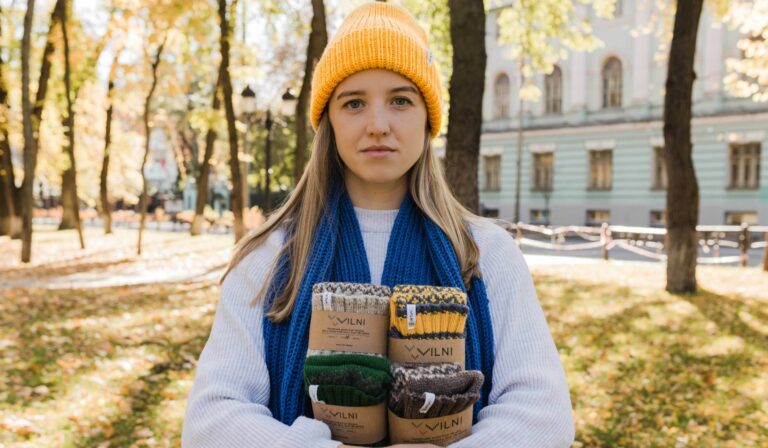
Socks for Peace: how the Vilni project is supporting internally displaced women in Ukraine
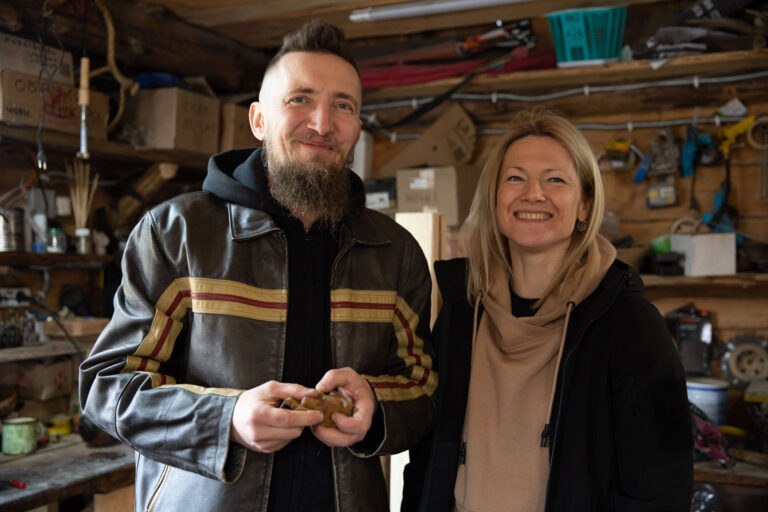
Celebrating traditional Ukrainian cultural identity in Rivne
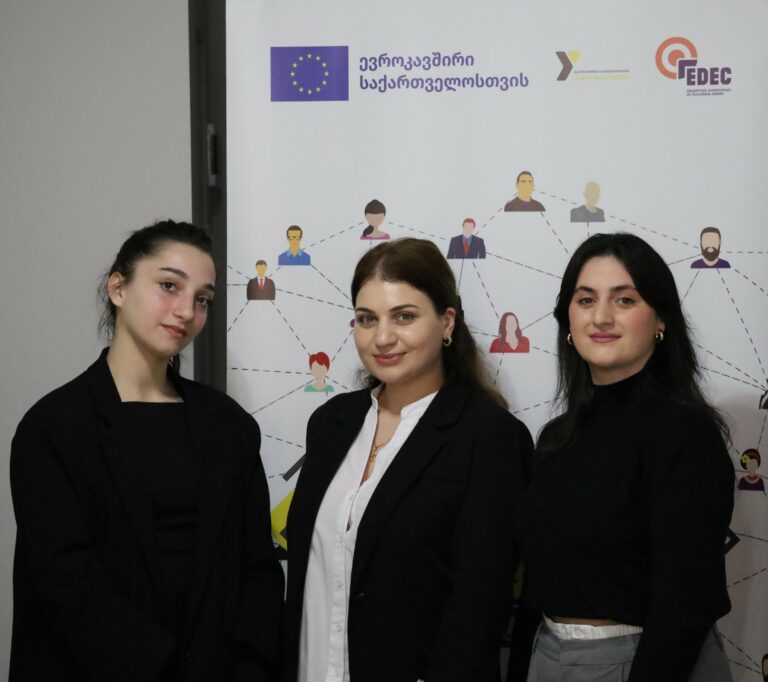
A hands-on approach to boost youth employment in Georgia
More campaign pages:
Interested in the latest news and opportunities?
This website is managed by the EU-funded Regional Communication Programme for the Eastern Neighbourhood ('EU NEIGHBOURS east’), which complements and supports the communication of the Delegations of the European Union in the Eastern partner countries, and works under the guidance of the European Commission’s Directorate-General for Neighbourhood Policy and Enlargement Negotiations, and the European External Action Service. EU NEIGHBOURS east is implemented by a GOPA PACE-led consortium. It is part of the larger Neighbourhood Communication Programme (2020-2024) for the EU's Eastern and Southern Neighbourhood, which also includes 'EU NEIGHBOURS south’ project that runs the EU Neighbours portal.

The information on this site is subject to a Disclaimer and Protection of personal data. © European Union,
